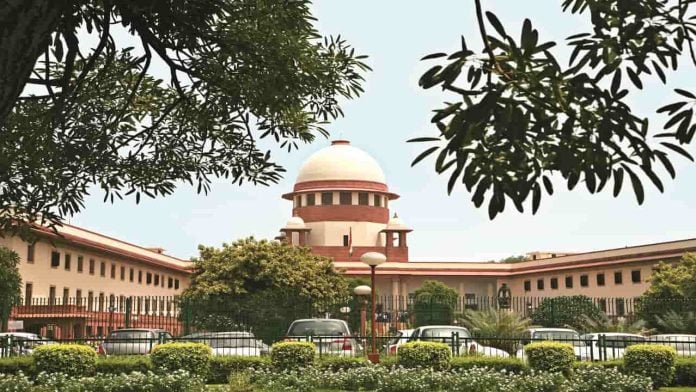The Supreme Court on Wednesday refused to grant urgent hearing on a petition filed by Bharat Rashtra Samithi (BRS) leader Kavitha Kalvakuntla, challenging the summons issued by the Enforcement Directorate (ED) against her in relation to her alleged involvement in the Delhi Excise Policy case.
The matter was mentioned before the bench of Chief Justice of India (CJI) DY Chandrachud and Justice PS Narasimha, which refused immediate hearing and posted the matter on March 24.
ED had earlier questioned the MLA from Nizamabad Local Bodies Constituency on March 11 and summoned her to appear in its Delhi office tomorrow.
Kavitha is the daughter of Telangana Chief Minister K. Chandrashekar Rao.
The petition, filed by Advocate Vandana Sehgal on behalf of the BRS MLA, contended that she was not named in the FIR and that the summons were in the teeth of Section 160 CrPC, which stipulated that no woman shall be required to attend as witness at any place other than the place in which she reside.
Kavitha further said that she was asked to appear before the ED in Delhi, purportedly to confront her with an arrestee in the case.
The agency had given her a very short notice for appearance and denied her requests to be examined at her residence or to extend the date of examination, noted the plea, alleging that when she appeared before the ED on March 11, she was subjected to multiple illegalities by the ED.
The MLA said she was forced to produce her cell phone whereas she was summoned under Sections 50(2), 50(3) PMLA, which did not require production of mobile. Further, the agency seized her device and interrogated her, a lady, much after the sunset. No confrontation with any arrestee was done, she added.
Kavitha alleged that ED purposely leaked her personal contact details in the garb of filing a remand application qua one of the accused in the case and thereafter, she was served a notice by the Central Bureau of Investigation (CBI). She was questioned for almost seven hours by CBI, added the BRS MLA.
The petition alleged that ED was adopting highly coercive tactics and third degree measures in connection with their purported investigations. It said there was no case against the petitioner.
The only basis on which the petitioner was implicated was on the basis of certain statements of a few persons, who had given incriminating statements qua themselves as well as allegedly against the petitioner.
As per the plea, such statements had been extracted out of threat and coercion, which was evident from the fact that on March 10 this year, one Arun Ramachandran Pillai retracted his statement.
The credibility of the statements purported to be against the petitioner was under serious doubt, it added.


